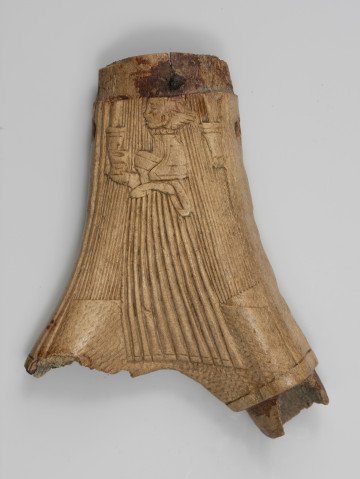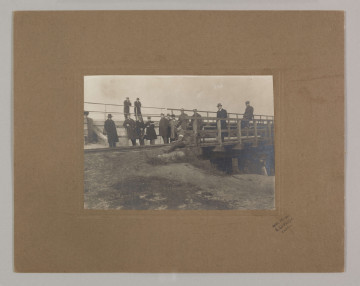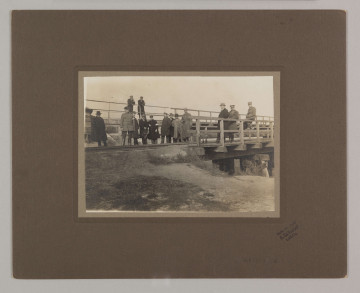
Powder box
1501 — 1600
National Museum in Szczecin
Part of the collection: European classics of modernity
The collection of maritime paintings in the National Museum in Szczecin is one of the largest in Poland. While views of the Baltic Sea after both 20th-century revivals of Polish statehood acquired political significance as a manifesto of regaining access to the sea, impressions of Southern Europe recorded by artists referred primarily to the roots of Western culture. Adriatic landscapes from the area of ancient Dalmatia or the Veneto region, famous for its colourful traditions, allowed one to commune with the timeless beauty of historical monuments and the allure of Arcadian nature. Among artists under the spell of the Mediterranean, there was above all Edward Okuń, a former pupil of Wojciech Gerson's Drawing Class in Warsaw (1890-1891), a student at the School of Fine Arts in Kraków (1891-1893), and at the private Munich schools of Stanisław Grocholski and Anton Ažbé (1893) and the Paris Académie Julian (1894). After honing his skills for a year at Simon Hollósy's Munich studio and Hungarian colony (1897), he settled in Italy for more than two decades in 1898. Living in the Eternal City, an old Roman and a painter half Italian, as Okuń used to say about himself, he went to the Tyrrhenian Sea, to Sorrento, Amalfi and Capri, as well as to the Adriatic, to Venice and Ravenna. After settling in Poland in 1921, he kept returning to southern Europe. In 1927 and 1929-1932 he visited Dalmatia with Ragusa, called Dubrovnik from the beginning of the 20th century. The aftermath of these trips was a show of 60 oil works, organised in January 1933 at the Zachęta Gallery in Warsaw. In the way he used colours, in the composition of landscapes, in the choice of subjects, E. Okuń created his own style, and at the same time he firmly established himself in the history of not only Polish, but also world painting. The only problem is that he knows how to please even those uninitiated in the magic of painting, and this is a terrible and unforgivable accusation for magicians, wrote Witold Bunikiewicz in his review of the exhibition (Jadran w „Zachęcie” [Jadran in Zachęta], Świat, 28.01.1933, no. 4, p. 12).
Szymon Piotr Kubiak
Author / creator
Dimensions
cały obiekt: height: 60 cm, width: 45,5 cm
Object type
painting
Creation time / dating
Creation / finding place
Identification number
Location / status

1501 — 1600
National Museum in Szczecin

1920
National Museum in Lublin

1920
National Museum in Lublin
DISCOVER this TOPIC
Museum of King Jan III's Palace at Wilanów
DISCOVER this PATH
Educational path